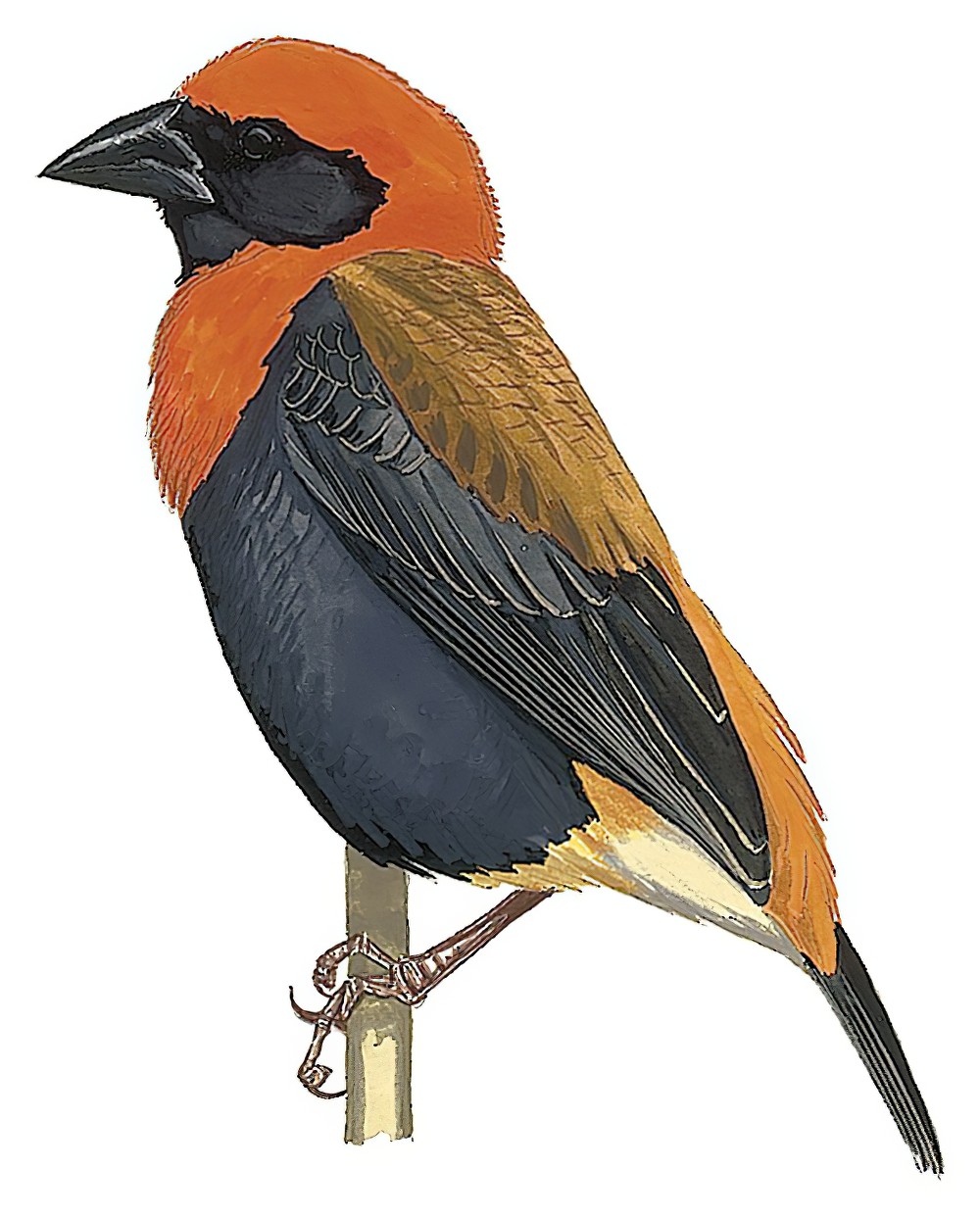Black-winged Bishop / Euplectes hordeaceus

Black-winged Bishop
SCI Name:
Protonym: Loxia hordeacea Syst.Nat.ed.10 p.173
Taxonomy: Passeriformes / Ploceidae / Euplectes
Taxonomy Code: blwbis1
Type Locality: In Indiis, error for Senegal (Gyldenstolpe, 1924, Kongl. Svensk Vet.-Akad. Handl., (3) 1, (3), p. 44).
Author: Linnaeus
Publish Year: 1758
IUCN Status: Least Concern
DEFINITIONS
EUPLECTES
(Ploceidae; Ϯ Southern Red Bishop E. orix) Gr. ευ eu fine, good; Mod. L. plectes weaver < Gr. πλεκω plekō to plait; "DIVISIONS OR SUB-GENERA. MALIMBUS. Vieil. ... PLOCEUS. Cuv. ... EUPLECTES. Nob. Bill of Ploceus. Toes and claws very slender. The greater quills scarcely longer than the lesser; spurious quill very minute. Type, Loxia Orix. L. ... The Weaving Birds, confined to the hotter regions of the old world, are chiefly found in Africa, where they represent the Hangnests (Icterinæ) of America: an analogy long since remarked by Buffon. Both these tribes astonish us by the consummate skill with which they fabricate their nests: but the intelligence displayed by the African Weavers is still more wonderful." (Swainson 1829); "Euplectes Swainson, Zool. Illustr. 2nd ser. i, text to pl. 37, 1929 [sic = 1829]. Type by original designation, Loxia orix Linn." (W. Sclater, 1930, Syst. Av. Aethiop., II, p. 759).
Var. Eupodes.
Synon. Boetticherella, Chera, Coliuspasser, Coliostruthus, Diatropura, Drepanoplectes, Groteiplectes, Hyperanthus, Niobe, Niobella, Oryx, Paraplectes, Penthetria, Penthetriopsis, Phlogoplectes, Pyromelana, Tachyplectes, Taha, Urobrachya, Xanthomelana.
hordeacea / hordeaceus
L. hordeaceus of barley < hordeum barley.
● "96. LOXIA. ... hordeacea. 14. L. fulva, temporibus albis, cauda pectoreque atris. Mus. Ad. Fr. 2. p. . . Habitat in Indiis. Corpus magnitudine Motacillæ albæ. Grisea sunt Humeri, Femora, Ani regio, margines Rectricum. Nigra sunt Tempora ad rostrum usque, Alæ & Remiges, Cauda & Rectrices, Pectus. Fulva sunt Caput, Collum, Uropygium." (Linnaeus 1758) (Euplectes).
UPPERCASE: current genus
Uppercase first letter: generic synonym
● and ● See: generic homonyms
lowercase: species and subspecies
●: early names, variants, mispellings
‡: extinct
†: type species
Gr.: ancient Greek
L.: Latin
<: derived from
syn: synonym of
/: separates historical and modern geographic names
ex: based on
TL: type locality
OD: original diagnosis (genus) or original description (species)












